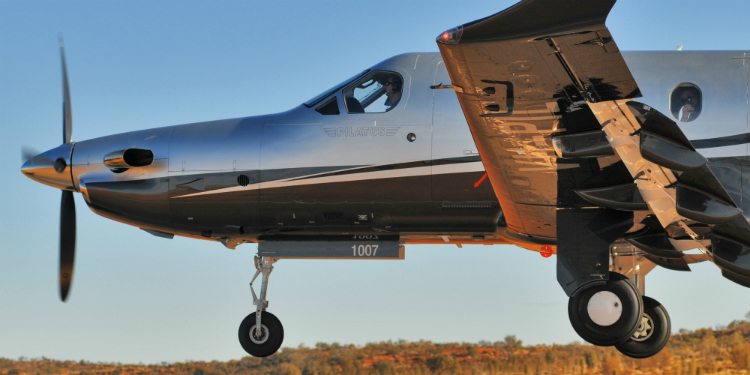Surf Air founders launch Beacon on East Coast

Pilatus-PC-12
An architect, a graphic novelist and an animator step onto an aeroplane. It sounds like a set-up for a bad joke, but it is a situation that Wade Eyerly found himself in when flying with the company that he helped launch.
Surf Air was founded in 2013 as an owner and operator of a fleet of Pilatus PC-12 executive turboprops. The twist was that rather than using its aircraft for private charter, the company flew them on a fixed schedule from Los Angeles, San Francisco and Santa Barbara. Members then paid around $1,600 per month to join the company and could fly as many times as they liked, giving as little as 20 minutes’ notice.
Community flying
Eyerly believes that one of the key differences between the members-only airline model that he pioneered with Surf Air and what is offered by the likes of Delta or United is that the experience is much more communal, with passengers eager to talk and learn from each other.
“I realised that each person was interested in the other because they were all creative people that had chosen different paths at a certain point in their lives,” says Eyerley, when he thinks back to his flying companions.
“Whenever we fly commercially, the first thing we do is try to signal to the guy next to us that we do not want to talk to him, whether it is putting your headphones in or reading a book,” he says.
Leaving aviation and returning
Surf Air raised large amounts of funding and managed to successfully lower the entry for level of business aviation – at least for its 900 members – according to Avinode’s Magnus Henriksson, but Eyerly decided to step down from the company in February 2014, making way for former Frontier Airlines CEO Jeff Potter (although some articles claim Eyerly was “forced out”).
ALSO READ: Pilatus delivers 1,300th PC-12 to Surf Air
By his own admittance, Eyerly is passionate about business rather than aviation itself, and he thought he was done with the industry for good. Instead, he focused on consultancy work and “figuring out what I wanted to do next.”
But in the months after leaving Surf Air, Eyerly began to think deeply about some of the things that he could have done differently, and decided to return to the industry.
Alongside Corey Cozzens, another departing co-founder of Surf Air, the pair of entrepreneurs launched Beacon. The premise is the same as Surf Air, but with one fundamental difference: Beacon does not actually own or operate any aircraft. Instead, it connects customers to a network of around 70 turboprop operators – each of which has been certified by ARGUS, an independent auditor of private aircraft operators.
Beacon will start with Pilatus PC-12s, but will look to add other executive-configured turboprops as the company grows.
Lessons learned from Surf Air
While Eyerly prefers to say that he learned from his experiences at Surf Air rather than from his mistakes, it is clear that Surf Air represented a steep learning curve for the Kansas City native.
Having heard stories from some Surf Air members that were forced to wait hours after missing their flights, Beacon decided to operate flights from two locations – Boston (Logan Airport) and New York (White Plains) – rather than three (although it also uses airports in Nantucket and the Hamptons during the summer).
By scheduling the same number of flights per day, but from one less airport, the company is able to operate more frequently for its regular fliers and cut down the waiting time in the result of a missed flight.
How Beacon works
Beacon members pay $2,000 a month – a slight increase on the fees charged by Surf Air – with a $1,000 joining fee. They can fly as often as they like throughout the month, but can only have four flights booked at any one time. One of Eyerly’s favourite analogies is to compare Beacon’s model to the way Netflix worked before it moved online: members could order as many DVDs as they liked each month, but were limited to how many they could have at a time.
Eyerly believes that over 90 per cent of Beacon flights will be booked online through the company’s responsive web app. But while the rest of business aviation has been slow to adapt to online booking, Eyerly says that the Beacon clientele is only slightly younger than the rest of the industry.
Surf Air shareholders
While it may seem like the 900 existing members at Surf Air would be the first on the call list for Beacon’s sales staff, both Eyerley and Cozzens have a vested interest in their former company as they remain shareholders.
For Eyerley, Beacon is a way of serving a very specific need for customers that travel regularly between New York and Boston. He sees no reason why Beacon members cannot also be customers at Surf Air or NetJets or Wheels Up, whose founder Kenny Ditcher is also making noble claims to “democratise private aviation” through its fleet of King Air 350is.
One way Beacon is encouraging new members to sign up is by offering the first 500 customers guest passes, access to exclusive events and flight benefits on Rise Airways, a similar offering in Texas.








